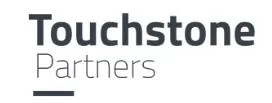Analysing SEBI's recommendations on grant of special rights to unitholders and role of sponsors in InvITs and REITs
In a recent consultation paper released by the Securities and Exchange Board of India (SEBI) dated 16 May 2023, SEBI has proposed certain changes to the regime relating to Infrastructure Investment Trusts (InvITs) and Real Estate Investment Trusts (REITs).
The note analyses the recommendations made by SEBI and discusses some of the key issues it raises.
Special Rights to Unitholders
One of the key principles (and often a sore point for large institutional investors) under the existing InvIT / REIT regulations is the requirement to have parity of rights amongst all unitholders without exception. The regulations currently provide that no unitholder shall "enjoy superior voting or any other rights over another unitholder" and that there will not be multiple classes of units. This regulation puts a large institutional investor at par with a retail investor from the perspective of exercising any governance type rights. This difficulty is, in practice, often bridged by large institutional investors through the acquisition of a minority stake in the investment manager (IM) entity coupled with a detailed governance framework at the IM level including having a right to nominate directors on the board of the IM. Against this background, SEBI has proposed two options aimed at extending some governance rights directly to unitholders:
(a) Board Nomination Rights: It has been proposed that unitholders will be entitled to nominate one (1) director on the board of the IM for every 10% stake they hold in the InvIT / REIT. There is also a proposal for small unitholders to come together and collectively nominate a director provided they reach the 10% threshold.
Whilst this is a welcome move in so far as it reflects SEBI's understanding of the need of investors to have governance rights, it is not clear how this right will dovetail with the process of appointing a director under the Indian Companies Act which vests the authority to appoint a director on to the shareholders. In our view, SEBI can, at best, impose an obligation on the IM to ensure that nominations received from any eligible unitholders are put up before its shareholders for their approval.
Further, even though large institutional investors may now be able to directly nominate a director on the board of the IM, it does not seem to us to be sufficient to dispense with their preference of also acquiring a minority stake in the IM with a view to also have a say in certain strategic decisions of the IM by virtue of certain affirmative rights. It is also worth bearing in mind that if this proposal gets implemented, the, often elaborate, governance framework that investors of existing InvITs / REITs may have agreed to may need to be relooked at to see how this right of unitholders to nominate directors will impact their existing commercial arrangements. This right may also have a knock-on effect on the number of independent directors on the board of the IM (since the independent directors are required to constitute a majority of the directors on the board of the IM).
(b) Unitholders' Council: As an alternative to unitholders nominating a director on the board of the IM, SEBI is proposing the constitution of a unitholders council which shall comprise of nominees of unitholders. The thresholds for nominating members on the council are the same as those for nominating directors, i.e. 10%.
The council is proposed to consist of a minimum of three (3) members. However, in the event nominations received from the unitholders are less than three, the vacancy on the council can either be filled by independent directors or alternatively the nominated representatives can be appointed as nominee directors on the board of the IM. In case a council is so formed, the unitholders will not have a representation on the board.
The council will be required to approve every decision made by the board of the IM, except for matters relating solely to the operations of the IM (such as financials of the IM and compensation payable to the employees of the IM). If the decision of the council (to be taken by a simple majority of the members present and voting) is different from that of the board of the IM, all such matters will be required to be referred to the unitholders for their approval. Further, all matters requiring the approval of unitholders will need to mandatorily include the recommendation of the council.
The placement of the unitholders' council as being an arbiter of all board decisions seems very curious to say the least. SEBI has tried to draw a parallel between a unitholders' council with the concept of an "investment committee" recognised in the context of Alternative Investment Funds (AIFs). However, it is difficult to find any similarities between the two – as while investment decisions in the AIF context may be delegated by the IM to an "investment committee", these committees generally do not contain LP representatives and generally operate independent of the IM's board and indeed its shareholders. The closest parallel in this regard under the AIF regime can be drawn to say a limited partners' advisory committee (LPAC). Though unlike the proposed unitholders' council, LPACs are not SEBI recognised and do not really take investment decisions but generally govern a limited suite of matters such as conflict of interests and related party transactions by the fund.
Role of Sponsor in InvITs/REITs
The InvIT / REIT regulations currently require all the sponsor units to be locked in for a period of one (1) year post listing and 15% of the total units for a period of at least three (3) years post listing. Currently, there is no requirement for a sponsor to hold any units in the InvIT / REIT after the expiry of this three (3) year period.
However, taking an extreme view, SEBI has proposed a perpetual lock in on a graded basis for sponsors, in accordance with which, a sponsor will be subject to a lock-in of at least 5% of the total units or INR 10 billion (whichever is lower) post the expiry of three (3) years, which will be reduced gradually over the years, such that after 20 years a sponsor will be required to hold at least 1% of the total units or INR 10 billion (whichever is lower).
It is interesting to note that unlike the InvIT regulations where there has never been an indefinite lock-in on the sponsors, under the REIT regulations, until 2020, sponsors were required to hold a prescribed unitholding at all times. Given that the amendments over the years, including the removal of this requirement for REITs, have been aimed towards relaxing the lock-in requirements on sponsors, this seems to be a complete turnaround by SEBI.
Interestingly, the consultation paper does not specifically deal with the issue of whether this change will only apply prospectively i.e. will apply to the InVITs / REITs which are listed after any amendment in this regard comes into effect – or whether this lock-in requirement will apply retrospectively. Any retrospective application could have a significant commercial impact on large institutional investors who may be taking comfort from the three (3) year time period to achieve a complete exit. Accordingly, a clarification on the proposed applicability would be reassuring.
Self-sponsored InvITs and REITs
Currently under the regulations, de-classification of a sponsor of an InvIT / REIT is permitted after a period of three (3) years from listing subject to compliance with a few conditions such as the sponsor and its associates holding less than 10% of the units, the sponsor not having any control over the IM and subject to obtaining consent of the unitholders. There is no requirement to induct another sponsor in place of the sponsor being de-classified.
SEBI is now proposing to do away with the option of de-classifying a sponsor and has instead sought to replace it with the concept of a "self-sponsored" InvIT / REIT. The consultation paper lists several "conditions" that an InvIT / REIT will need to satisfy in order to qualify as a "self-sponsored" InvIT/ REIT. These conditions are seemingly more onerous than what has currently been prescribed for de-classifying a sponsor including extending the period to five (5) years post listing (from the current three (3) year period), the InvIT / REIT being regular in making distributions, maintaining the relevant net worth requirements and maintaining a 'AAA' rating for a continuous period of five (5) years.
In essence, SEBI is proposing to do away with its earlier thinking of having a sponsor continue with the InvIT / REIT during its entire lifetime – there was a proposal earlier this year indicating this preference of SEBI – and allow InvITs / REITs which have reached the level of independence and maturity to continue to function without any support from the sponsors to disassociate themselves from the sponsors. If on the other hand, the InvIT / REIT continues to rely on the sponsors, then SEBI's preference seems to be for the sponsor to continue to have its "skin in the game" perpetually or till such time that such dependence continues.
Concluding thoughts
Whilst SEBI's attention to REIT / InvITs and its attempt to strengthen these regimes are welcome steps, the proposals do leave out a few crucial details. Any amendments should be seen to be akin to a tightrope walk, as SEBI would need to be seen to be balancing investors' interest along with maintaining the commercial attractiveness of these structures. It will be interesting to see the final form these proposal take based on industry feedback.
The content of this article is intended to provide a general guide to the subject matter. Specialist advice should be sought about your specific circumstances.




